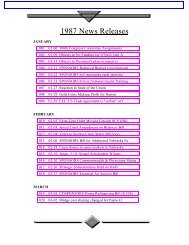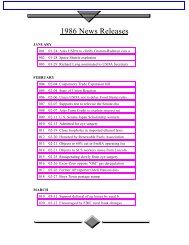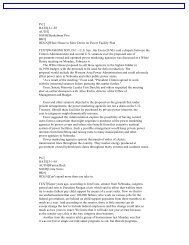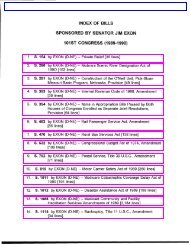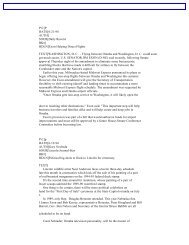1986 - The Exon Library
1986 - The Exon Library
1986 - The Exon Library
You also want an ePaper? Increase the reach of your titles
YUMPU automatically turns print PDFs into web optimized ePapers that Google loves.
evenue must originate in the House of Representatives. <strong>The</strong><br />
Conrail sale would affect revenues since it would grant a<br />
limited immunity from taxation, therefore making it<br />
unconstitutional. <strong>The</strong> Senate Commerce Committee realized<br />
that there would be a constitutional problem with the bill<br />
and added a new provision to the substitute amendment that<br />
attempts to resolve the issue. It still will not satisfy<br />
the Constitutional test, however, and the House surely will<br />
kill the Conrail sale bill when it is considered there.<br />
Opponents of the point of order explained that the Conrail<br />
sale bill could not be considered a revenue-raising<br />
measure. <strong>The</strong> only tax loss that would occur upon enactment<br />
would result from the consolidated tax returns being filed<br />
between a taxpaying corporation and one that would be<br />
generating tax losses. Actual tax laws would not be<br />
altered. Furthermore, the Supreme Court has spoken on this<br />
issue in the case of U.S. v. Norton stating that the<br />
limitation in the Constitution for revenue-raising bills to<br />
originate in the House is confined to bills that levy taxes<br />
and cannot be extended to bills which incidentally create<br />
revenues.



